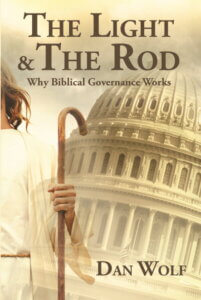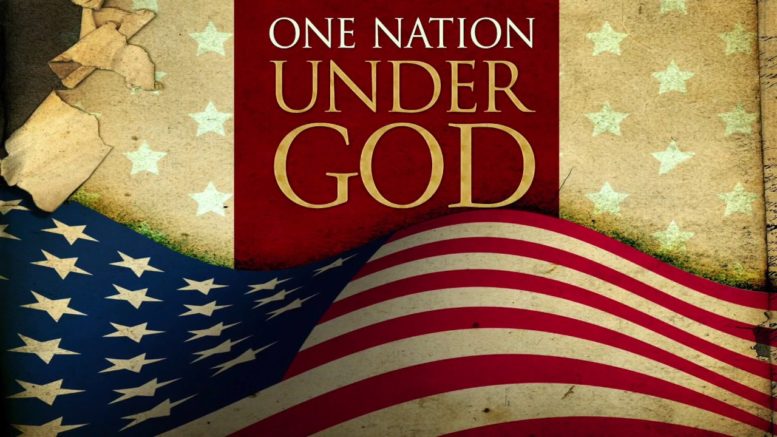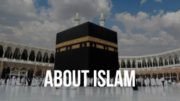Part two looks at some of critical theory’s primary ideas and history. Critical theory has been around for several hundred years, but we’ll see its roots are far older. Today’s version is a fusion of the critical theory school of thought and post-modernism. Both pieces firmly rooted in politics. Unless otherwise noted, all quotes come from Stanford’s Encyclopedia of Philosophy.[1]
What is It?
At its most basic level, critical theory attempts to “explain and transform all the circumstances that enslave human beings.” Its goals are to; (1) identify all forms of oppression, and (2) transform those conditions creating a “world which satisfies the needs and powers” of human beings. Who can argue with that? However, it’s not just the ends that matter, but the means used to attain them.
Critical theory’s ideas center on identifying oppression and transforming society to remove it. It is a marriage, or merging, of philosophy and science. As explained in the previous article, man’s reason within this world-view becomes god. Reason is transcendent and its application immanent. Man’s reason is expressed using philosophy, and applied to critical theory’s goals using today’s social sciences.
There are two levels to critical theory. The Stanford Encyclopedia article identifies them as “a narrow and broad meaning in philosophy and in the history of social science.” The narrow sense is attributed to the Frankfurt School and Marxism. The broader sense is the application of its ideas to all of the different instances where oppression is identified. Therefore, many individual theories identify different cases or types of oppression such as; racism, sexism, classism, transgender oppression, ageism, heterosexism, etc. If you have a grudge, you can find or create your own oppressed class.
Under critical theory you are either a victim or a sinner (oppressor). Both fated based on characteristics you largely have no control over. A very fatalistic view of life relating to critical theory’s idea of freedom, which we’ll pick up in the next article.[2]
Its History …
So how did critical theory enter America’s culture? The answer is primarily through the administrative state. The administrative state began with Woodrow Wilson. Within this state unelected bureaucracies replace our founding institution’s functions. We no longer have a government consisting of separate executive, legislative, and judicial branches; each having limited powers. Instead we’ve created departments, bureaus, and agencies possessing concentrated powers to legislate, execute, and adjudicate. Overturning what America’s Founders intended.
This bureaucracy expanded under FDR’s New Deal programs, a means of providing for the common man through public works creation. But it also began shifting attitudes from self-reliance to entitlement. This shift expanded more during the 1960’s with social scientists implementing Johnson’s Great Society programs. Today attempts are made to ‘transform’ America’s society into a welfare state. Obamacare is one such step in the goal of creating a single-payer healthcare system. All these attempts have failed. After spending trillions of dollars, there are still as many today in need as there were when the programs first began, and it is likely people today are more dependent on these programs than when they were first implemented.
… and Progression
Critical theory has also undergone an evolution in thought. It began with classical Marxism, oriented around economics. Critical theory found its way to America from the Frankfurt School through John Dewey and Columbia University’s sociology department. It then turned from economics to culture, the cultural Marxism embodied in identity politics. At its heart, identity politics seeks to divide and categorize all society—that is, create classes within society. These classes cross race, religion, creed, gender, age, economic, and social groups. Anything you can think of.
Social science identifies oppression within these groups and attempts to remove it through transforming society. Identifying oppressed group members is the idea of intersectionality. Contemporary critical theory argues that oppressed group members ‘lived experience’ gives them special access to truth. The more oppressed groups you belong to, the greater your intersectionality—the more truth you possess.
Oppressor groups maintain power over those they oppress by imposing their ideology and disguising their oppression as objectivity. This is straight out of Saul Alinsky’s rules for radicals. Accuse others of what you yourself do. The same factors used to identify the oppressed identify the oppressors. If one is classified as an oppressor, you cannot really do anything about it. It is part of whatever ‘privilege’ you’ve known and experienced, based largely on traits you cannot control. The most you can do is renounce your privilege, by renouncing who you are. This approach is akin to the Chinese re-education camps. It is simply deception—that is, evil.
Wrapping Up
Understanding critical theory is these articles purpose, and requires understanding its ideas and assumptions. The last article examined one of those ideas. Ideology versus religion. Before we go very far with these terms though, we need to define them.
Religion is simply the relationship between man and some supreme deity, entity, being, essence, or nature. There is separation between man and this supreme authority. The relationship extends from the material to the spiritual, from the earth to the heavens. Ideology, on the other hand, concerns how man orders his relationships with his fellow man, particularly in the area of governance. It is all about man and the material.
 While separate, Christianity’s religion is intended to influence its follower’s ideology. Ideas like critical theory begin and end with man, they are nothing but ideology. This is interesting because critical theory rejects ideology as a source of oppression. However, critical theory is nothing but ideology as it is all about man ordering his interactions with others to remove oppression. It seeks to deny what it is, because ideology is inconsistent with its ideas.
While separate, Christianity’s religion is intended to influence its follower’s ideology. Ideas like critical theory begin and end with man, they are nothing but ideology. This is interesting because critical theory rejects ideology as a source of oppression. However, critical theory is nothing but ideology as it is all about man ordering his interactions with others to remove oppression. It seeks to deny what it is, because ideology is inconsistent with its ideas.
But there is little need for logic with such ideas. All that is required is faith; faith in man. Critical theory, and other ideas like it, simply create a new religion. One ordered around man’s reason, or man himself. Francis Schaeffer’s irrational leap, man as machine—that is, naturalism.[3]
The next few articles examine critical theory’s ideas around truth, oppression, and societal transformation. Along the way we’ll complete the diagram below comparing Christianity, critical theory, and Greek philosophy. I hope you’ll find it useful.
Idea Comparison
|
Idea |
Christianity |
Critical theory |
Greek philosophy |
|
Supreme Authority |
God |
Man |
First cause |
|
Religion Focus |
God |
Man |
god(s), created by man |
|
Ideology |
Man, influenced by God’s natural rights and divine law |
Man, influenced by his own reason |
Man, search for truth of existence, morality, and knowledge |
|
Man’s nature |
Equality of nature, only one race – the human race |
Some more equal than others, class existence |
Some more equal than others, class existence |
Footnotes:
[1] Bohman, James, “Critical Theory”, The Stanford Encyclopedia of Philosophy (Winter 2019 Edition), Edward N. Zalta (ed.), URL = <https://plato.stanford.edu/archives/win2019/entries/critical-theory/>. Accessed Sept., 2020.
[2] Augustine’s City of God discusses this. Those views related to freedom can be found in Wolf, Dan, pp. 100-2,The Light & The Rod: Why Biblical Governance Works, Living Rightly Publications, 2020.
[3] Schaeffer, Francis A., Escape from Reason, InterVarsity Press, 1968.



